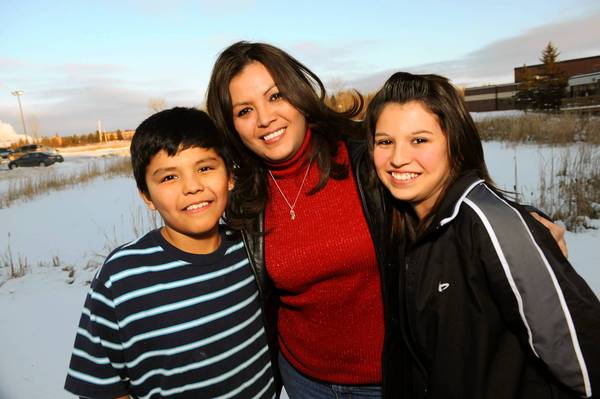
Prejudice can kill. George Zimmerman saw a young black male wearing a hoodie, and made a decision that reflected the dictionary definition of prejudice — a “preconceived judgment or opinion … An adverse opinion or leaning formed without just grounds or before sufficient knowledge.” Zimmerman, the neighborhood watch coordinator of a gated community in Sanford, Florida, didn’t know Trayvon Martin, the teenager he followed. Martin didn’t do anything specific that would have been suspicious to an unprejudiced observer. He was unarmed and gave no indication that he harbored criminal intent of any kind. Zimmerman simply prejudged him. And it cost Martin — a seventeen-year-old out to buy some Skittles — his life.
Prejudice killed Trayvon Martin. But there are other, less obvious forms of prejudice, ones that even those of us who would rightly condemn a man like Zimmerman might be tempted to practice and justify.
Recently, I had a disagreement with friends over the PBS documentary Kind Hearted Woman, which profiles the Oglala Sioux woman Robin Charboneau, a divorced single mother and recovering alcoholic living on North Dakota’s Spirit Lake Reservation. The filmmaker, David Sutherland — who also made the celebrated 1998 documentary The Farmer’s Wife — is white.
My friends argued that only someone who was Sioux — or at least Native — could do justice to the life experience of this woman, who as a child endured repeated rapes and molestation at the hands of her foster family and as an adult struggles to win custody of her kids and take her ex-husband to court over the abuse of her daughter. They were particularly upset that someone like Sutherland was doing the film, given the centuries of injustices that white men have inflicted on American Indians. For his part, Sutherland has said that he originally meant for the documentary to focus on the theme of abuse on the prairie — “My thought was, middle-aged white men have caused [Native Americans] enough trouble” — but after interviewing fifty women, he settled on Robin. (Since the film’s completion, Robin has decided to go by Robin Poor Bear, using her mother’s last name rather than her ex-husband’s).
I can respect and sympathize with the criticisms that my friends made. There is understandable sensitivity about who tells the stories of historically disadvantaged groups, given the barriers they have faced in telling their own stories in Hollywood and elsewhere. For American Indians, these concerns are all the more poignant: well into the twentieth century, the U.S. government sought to wipe out their tribal cultures (a campaign darkly remembered in the phrase, “Kill the Indian in him, and save the man“).
But fundamentally, this line of criticism — that artists or writers can’t tell a particular story because they are of a different ethnic background from the subjects of the film or history — is a form of prejudice, too. It may not have the life-and-death stakes of the kind of prejudice that motivated George Zimmerman, but it is prejudice nonetheless.
This is a topic I’ve written about in the past. When his book The Corner was turned into an HBO miniseries, David Simon came under fire. The plight of black drug addicts in Baltimore was not “his story to tell,” critics said, because Simon is white. What I wrote back then applies to today’s criticism of Kind Hearted Woman as well:
This assumes that only black people can or should write about black people, and implies that there exists a single, unanimous perspective that all black Americans hold.
Many black Americans did not grow up in an inner-city community, so they would not be any better ”witnesses” than Mr. Simon to such a story. If this philosophy is pushed to its fullest conclusion, only autobiographies will become acceptable representations of life. If we accept that race and ethnicity have trumped our ability to understand, empathize and write about the sufferings or joys of those with whom we share this country, we are finished as a society.
Of course, The Corner would go on to inspire Simon’s critically acclaimed HBO series The Wire, which the current president and prominent African American scholars alike have lauded as a deeply realistic and moving portrait of inner-city America and a groundbreaking analysis of the roots of urban inequality.
And that is my point: if someone of any background tells the story of a community or ethnic group in a way that is disrespectful or just plain wrong, by all means call them out on it. Yes, history has countless examples of stories that have been misused, misappropriated, or simply stolen for personal gain. But assuming that there is one acceptable perspective (or that all or most people from a particular group share that perspective) is prejudice, any way you look at it. And if we argue that prejudice is acceptable in the “right” circumstances, then how do we, as a society, determine which are those circumstances? This kind of thinking just provides intellectual cover for those who would justify racial profiling. It becomes harder to argue that prejudice is wrong in certain cases when you insist it is okay in others.
In short, we have to take a morally consistent approach. We should judge people based on what they do, not on a simplistic group label. We must loudly condemn prejudice of all kinds, and not just the kinds that seem the most harmful to us. That is the best way to overcome the strain of deluded and dangerous thinking that led George Zimmerman to get out of his car that February night in Sanford.
Ian Reifowitz Ian Reifowitz is the author of Obama’s America: A Transformative Vision of Our National Identity. Twitter: @IanReifowitz
- Follow us on Twitter: @inthefray
- Comment on stories or like us on Facebook
- Subscribe to our free email newsletter
- Send us your writing, photography, or artwork
- Republish our Creative Commons-licensed content

